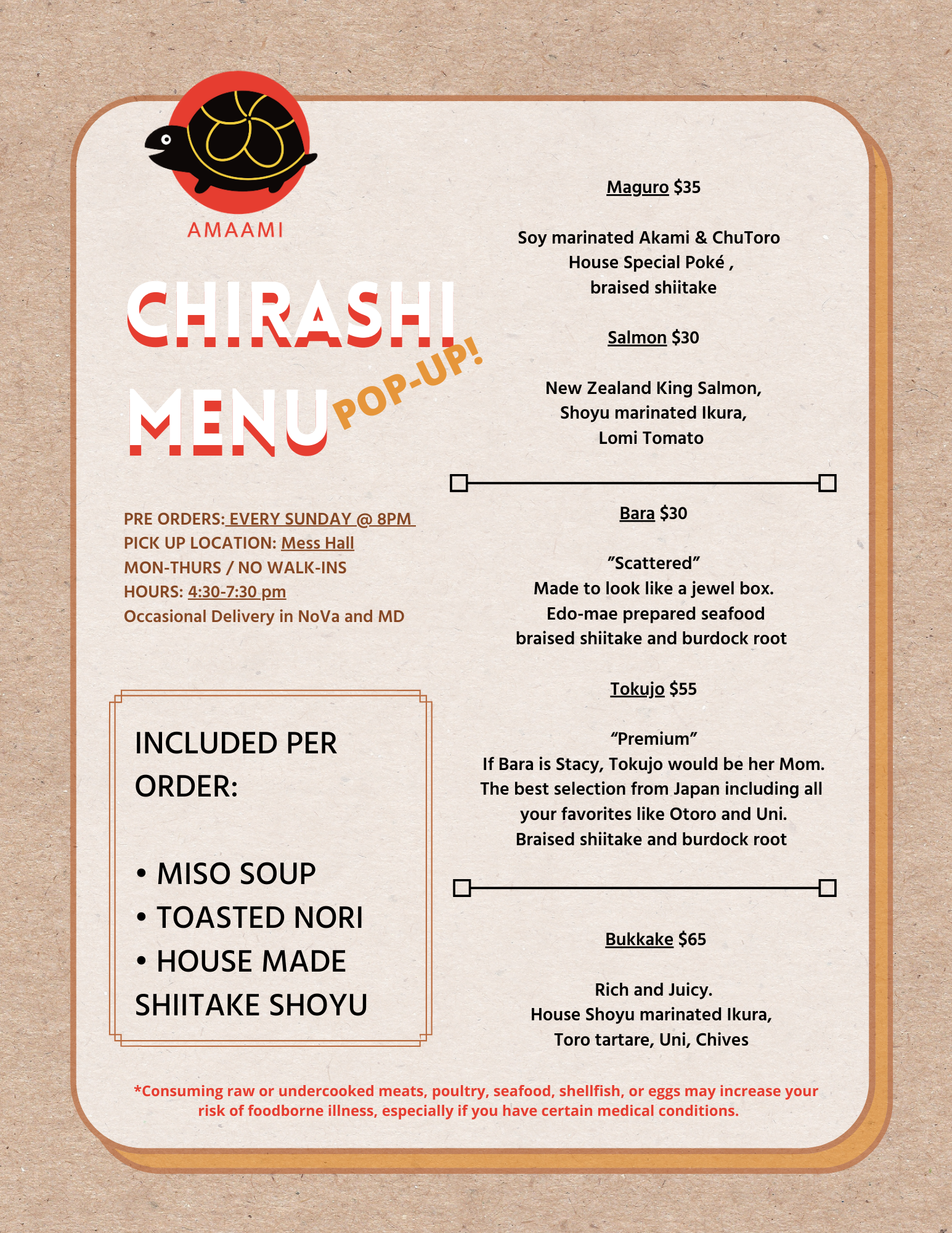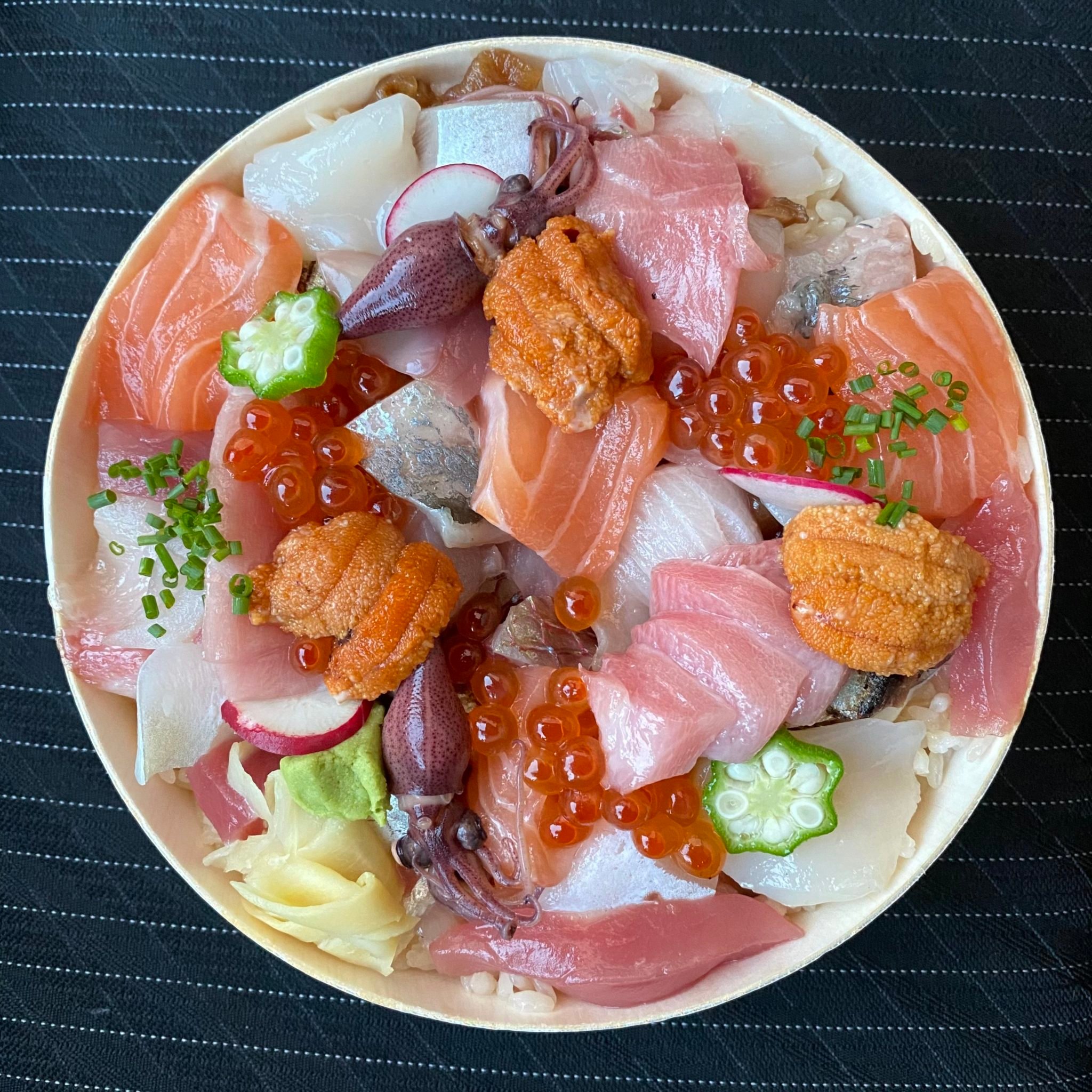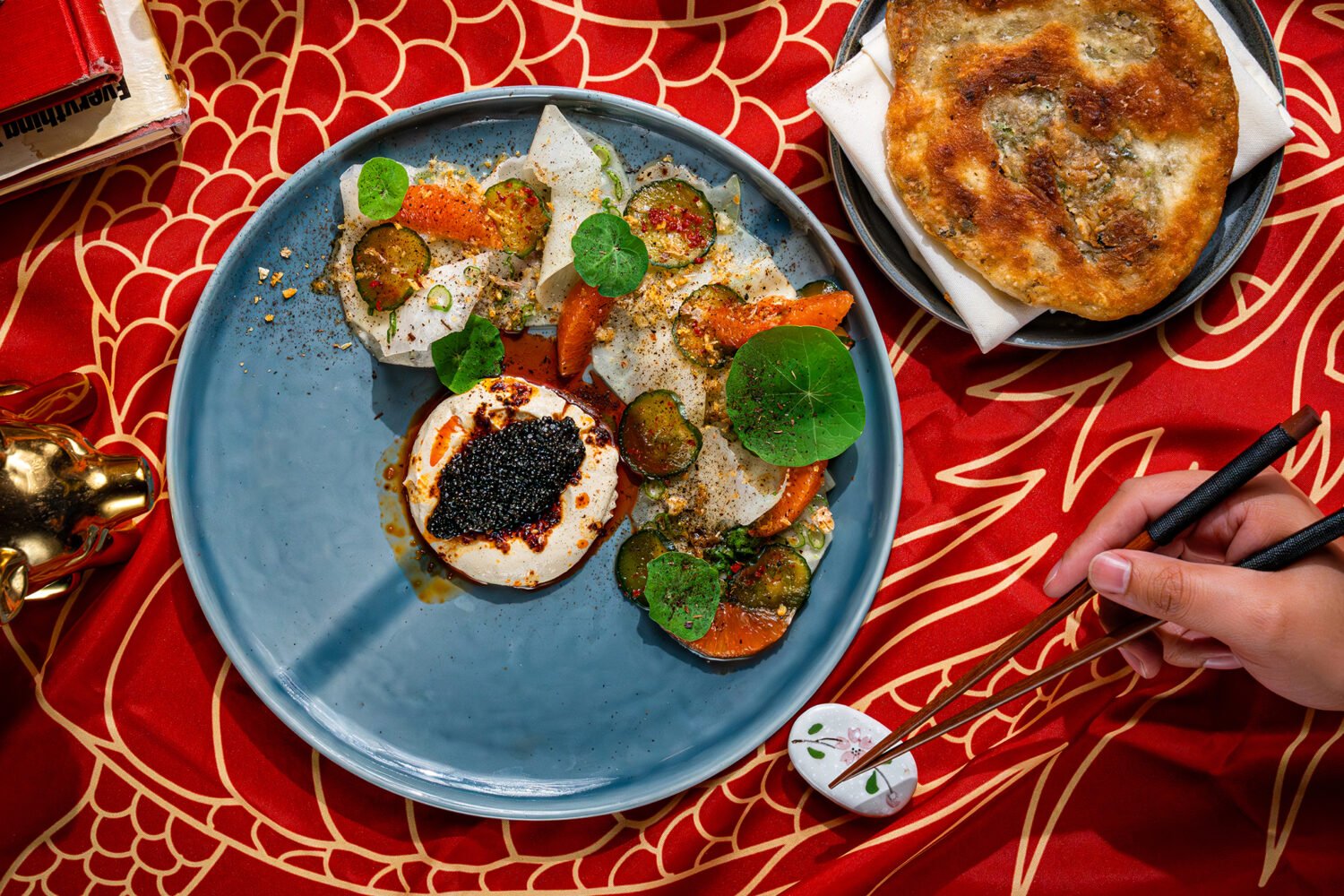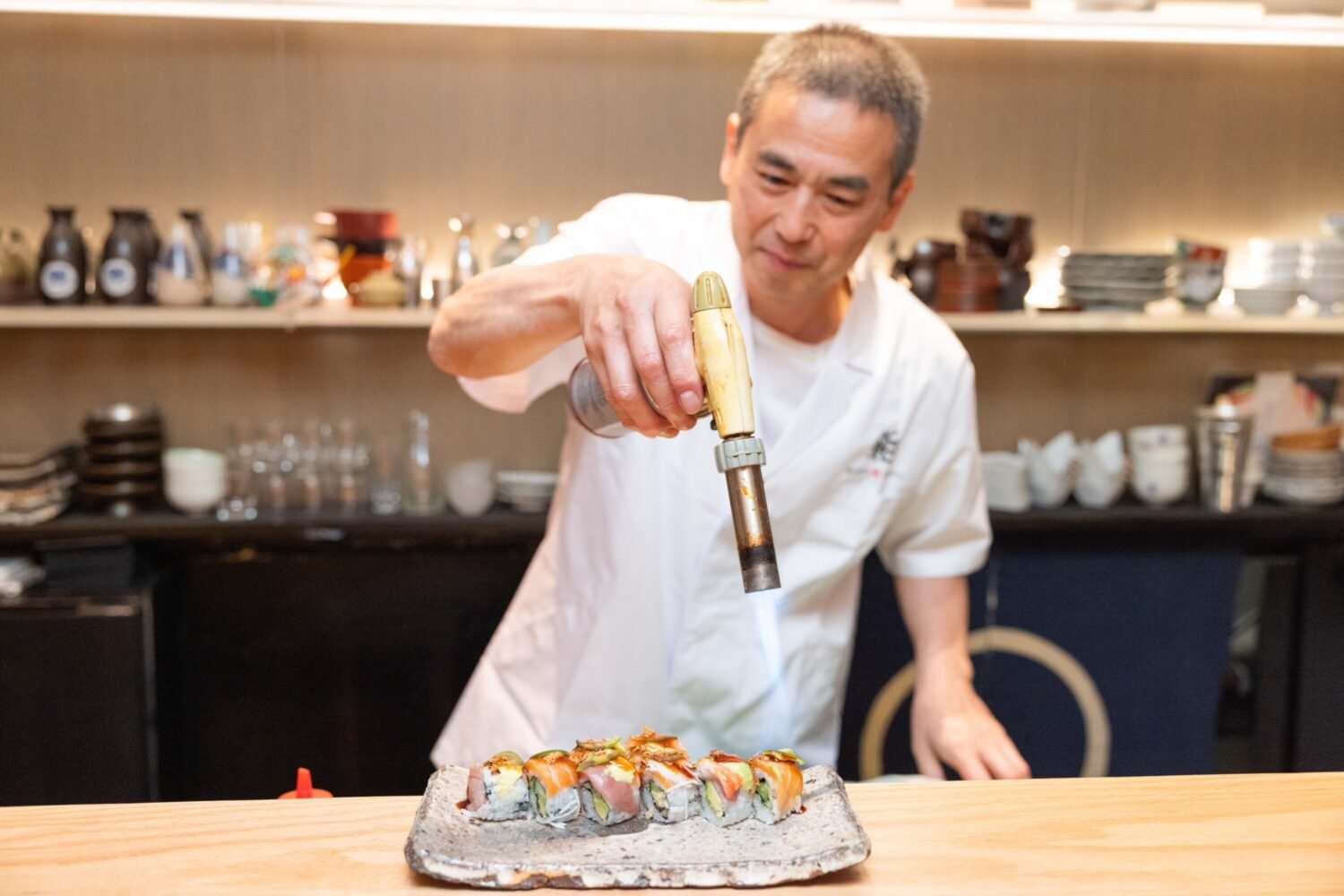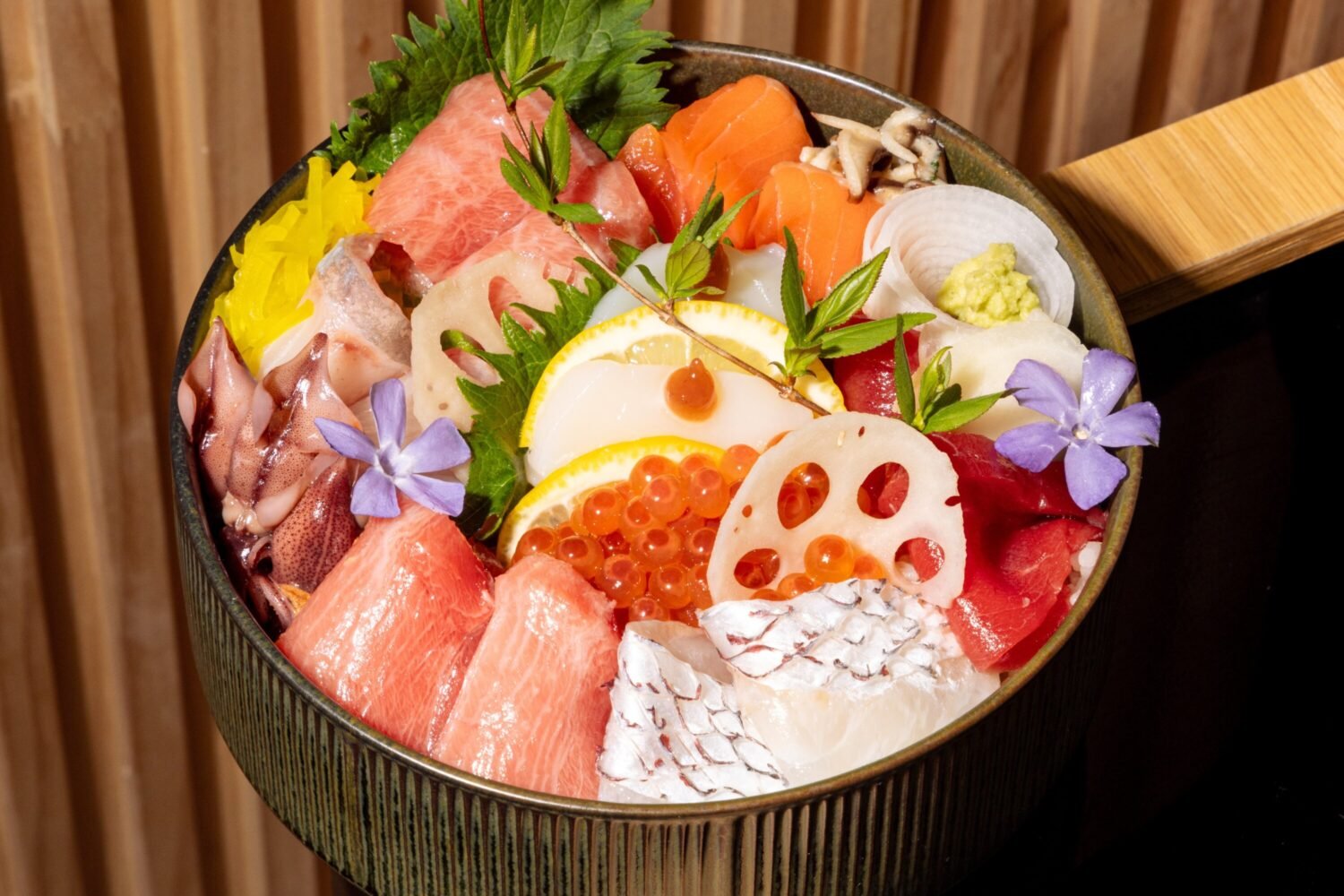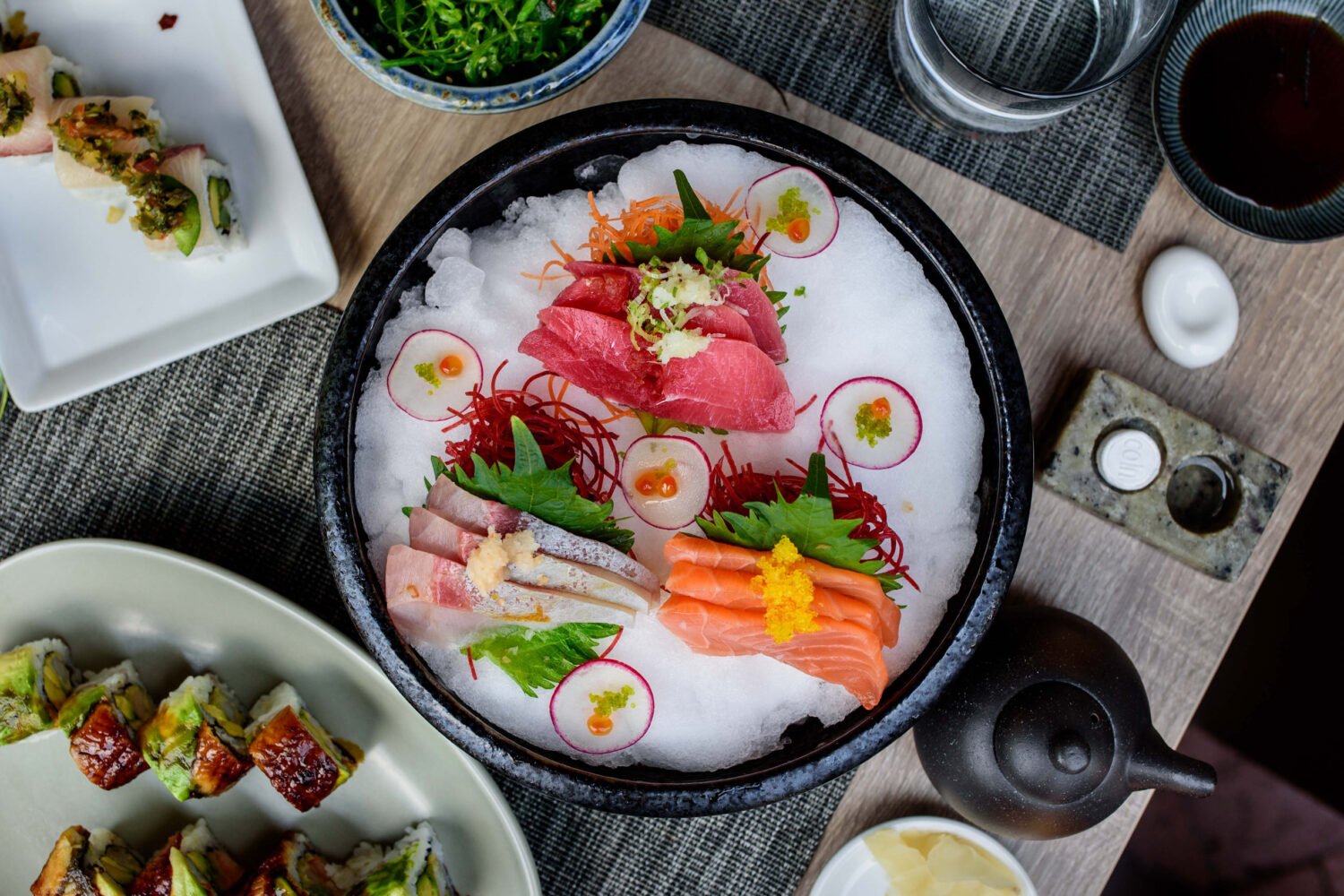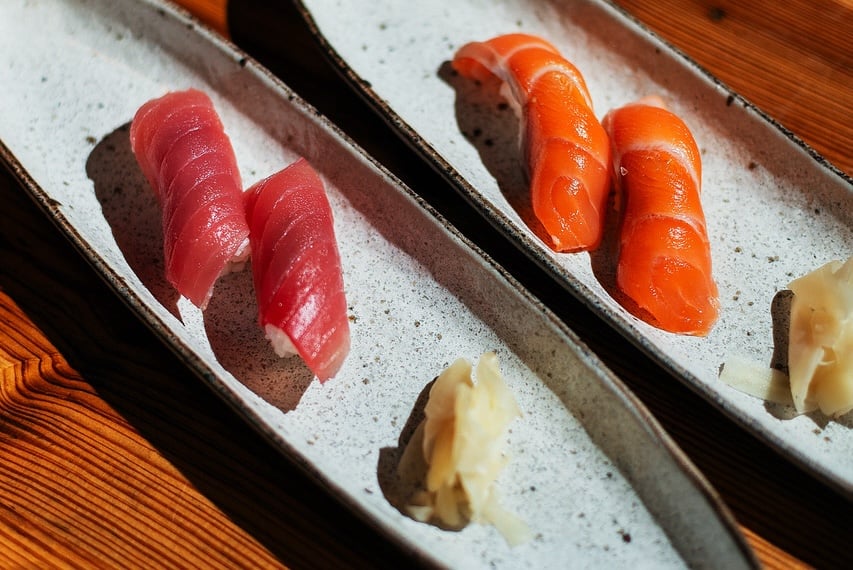Amy Phan and Zach Ramos had been working at Sushi Taro and running a catering side hustle when the pandemic hit a year ago. Suddenly out of work, they began thinking more seriously about running their own business. What started with Hawaiian and Japanese meals delivered to friends has since snowballed into private in-home omakase tastings—booked up weeks in advance—along with luxe takeout chirashi bowls that have become an Instagram hit.
Phan, a 25-year-old Virginia native, and Ramos, 30, from Hawaii, have both been working in restaurants since they were teenagers. Phan’s resume has spanned from sushi-and-steak chain Kona Grill to DC’s fast-casual Donburi. Ramos cut his teeth cooking Hawaiian regional cuisine at acclaimed Roy’s in Honolulu before coming to DC where he’s worked for Abunai’s Hawaiian food truck and (now-closed) Sei Restaurant & Lounge. The two met—and started dating—while working at Sushi Taro. In 2017, they used their limited spare time to start a sushi supper club, which they usually hosted in an apartment building’s community room, with live music. That developed into a small catering operation called Aloha CR3W, which focused on Hawaiian food.
The pair were delivering meals during the first few months of the pandemic when clients started asking whether they might come into their homes to cook. In late May, they launched “homakase”—an in-home omakase experience. By the end of the summer, they were booked every single weekend. The couple called it Ama Ami as a play off Phan’s name and favorite sushi, ama ebi (or sweet shrimp)—hence,”sweet Amy.”
Ama Ami offers two different packages—one with sushi only and another kaiseki option that includes small composed dishes, sushi, and dessert. Within both, customers can opt for beginner, intermediate, and advanced levels. On one end of the spectrum, you’ll find your introductory sushi staples like salmon and tuna. On the other, expect plenty of seasonal imports from Tokyo’s Toyosu Fish Market plus “funky stuff” like cod sperm.
Ama Ami has relationships with the same distributors as Sushi Taro, allowing it to score top-quality fish. “Homakase” prices range from $120 to $205 per person, depending on the level. For an additional $40, the duo will bring a live lobster then break it down for lobster nigiri, sashimi, and miso soup. Everything is highly customized: “We had one family that didn’t even like raw fish, so we seared every single course for them,” Phan says. The dinners have run the gamut from people wearing pajamas to those celebrating anniversaries in fine-dining attire.

The “homakase” dinners are now limited to weekends to make time for a weekday chirashi-bowl “pop-up tour” Phan and Ramos launched at the end of February. The jewel box-like selections of raw fish—including premium fatty tuna and sea urchin—range from $30 to $65. (See the full menu below.)
Tuesdays are for DC pick-ups from Mess Hall, where Phan and Ramos prepare their food (and have hosted tuna-butchering events in the past). Wednesdays, they move to rotating pick-up points in Maryland. And Thursdays, Northern Virginia. They’re working to set up a point-of-sale system that will make deliveries possible soon. For now, pre-orders are available beginning Sundays at 8 PM through their website.
In mid-April, Ama Ami will begin offering cream puffs in Asian-American flavors such as chocolate with macadamia-nut cream or mango-passionfruit lassi. All the pastries will be turtle shaped; “In Japanese and Hawaiian culture, the turtles symbolize longevity and good luck,” Phan says. She’s been baking them since she was a 14-year-old following recipes from YouTube. For her, it’s a chance to embrace her love of pastries, while also being a rare female sushi chef.
“There’s always this stigma where you have to act tough and be like a man in a man’s world, especially in the food industry.” Phan says. “And that wasn’t me. I’m very soft-spoken and quiet and petite, but I still love to learn about food. One time a chef told me, ‘Hey, you should just do pastry because it would be easier for you.’ Little did he know you’ve got to be extremely determined to be a pastry chef, because that stuff is hard.”
Phan and Ramos are working to open their own restaurant, which would serve as a cafe with pastries in the morning and chirashi for lunch. In the evenings, the place would transform into an intimate omakase counter with a small to-go menu. So far, they’ve looked at spaces from Georgetown to Baltimore. They’d always wanted to own their own spot, but the pandemic has actually helped expedite the plans.
“For all the creatives, they were so used to the ritual before the pandemic. They didn’t have any time for themselves,” Phan says. “And then we were all forced to stay home and do nothing and be alone with our minds, so I think it really did help us take the leap.”
